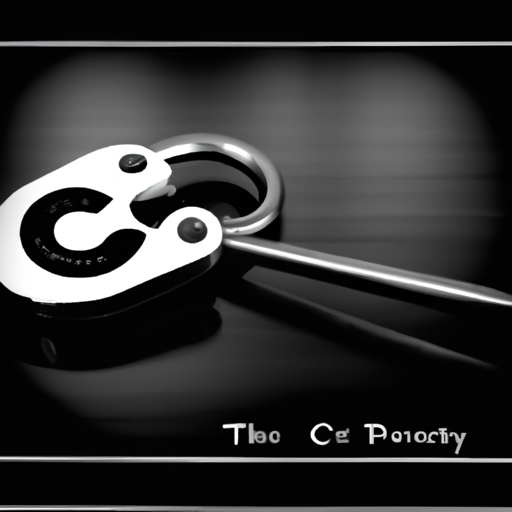In today’s fast-paced and ever-evolving business landscape, intellectual property has become an increasingly vital asset for businesses of all sizes. As a business owner, it is essential to protect your creative works, inventions, and trademarks to maintain a competitive edge in the market. However, navigating the complex world of intellectual property law can be daunting, which is why you need the expertise of an experienced Intellectual Property Lawyer in Millcreek, Utah. With a deep understanding of intellectual property laws and vast experience in assisting businesses, this lawyer can guide you through the intricacies of IP protection and enforcement. Whether you need assistance with trademark registration, copyright infringement, or trade secret protection, this attorney is equipped to provide you with the personalized and comprehensive legal representation you need. Contact us today to start safeguarding your valuable intellectual property and secure your business’s future.

What is Intellectual Property Law?
Intellectual Property Law is a legal framework that protects and governs intangible assets, including inventions, artistic works, brands, designs, and trade secrets. It provides creators and inventors with exclusive rights and controls over their intellectual property, preventing others from using, reproducing, or exploiting their work without permission.
Definition of Intellectual Property
Intellectual property refers to creations of the mind, such as inventions, literary and artistic works, symbols, names, images, and designs used in commerce. It encompasses various forms of intangible assets, including patents, copyrights, trademarks, and trade secrets. These assets are valuable and require legal protection to safeguard the interests of creators and encourage innovation and creativity.
Importance of Intellectual Property Law
Intellectual Property Law plays a crucial role in fostering innovation, creativity, and economic growth. By providing legal protection and exclusive rights to creators and inventors, it encourages investment in research and development, incentivizes the creation of new inventions and artistic works, and facilitates the commercialization of intellectual property assets. Without adequate protection, creators and inventors could be discouraged from sharing their ideas and innovations, stifling progress and economic development.
Types of Intellectual Property
There are several types of intellectual property rights that can be protected under Intellectual Property Law:
-
Patents: Grant exclusive rights to inventors, providing protection for new and useful inventions, processes, and methods.
-
Copyrights: Protect original artistic, literary, and musical works, including books, music, paintings, sculptures, photographs, software, and architectural designs.
-
Trademarks: Protect brands, logos, names, and symbols that identify and distinguish goods or services in the marketplace.
-
Trade Secrets: Cover confidential and proprietary information, such as formulas, recipes, manufacturing processes, customer lists, and business strategies, which provide a competitive advantage to businesses.
Scope of Intellectual Property Law
Intellectual Property Law covers a wide range of legal issues and provides remedies for infringements and violations of intellectual property rights. It encompasses the following areas:
-
Registration and Protection: Intellectual Property Law allows creators and inventors to register their intellectual property assets with the relevant authorities to obtain legal protection and exclusive rights.
-
Enforcement: If someone infringes upon your intellectual property rights, Intellectual Property Law provides legal avenues and remedies to enforce those rights and seek damages or injunctions to prevent further infringement.
-
Licensing and Transfer: Intellectual Property Law allows creators and inventors to license their intellectual property assets to others, granting them permission to use or exploit their work in exchange for royalties or other compensation.
-
International Protection: Intellectual Property Law also extends to international treaties and agreements that provide global protection for intellectual property rights, ensuring consistency and harmonization across different jurisdictions.
-
Litigation and Dispute Resolution: In case of disputes or conflicts relating to intellectual property, Intellectual Property Law provides a framework for resolving conflicts through mediation, arbitration, or litigation.
Why Businesses Need an Intellectual Property Lawyer
Businesses rely heavily on intellectual property assets to gain a competitive advantage, build brand recognition, and drive innovation. Therefore, it is crucial for businesses to consult with an intellectual property lawyer to protect their valuable assets and navigate the complexities of intellectual property law.
Protecting Business Assets
An intellectual property lawyer can assist businesses in identifying, securing, and protecting their intellectual property assets. They can conduct comprehensive audits to assess the scope and value of these assets, formulate strategies to safeguard them, and ensure compliance with registration, licensing, and enforcement requirements.
Preventing Intellectual Property Infringement
Intellectual property lawyers help businesses proactively prevent intellectual property infringements by conducting thorough searches and clearance procedures. They can analyze existing trademarks, copyrights, and patents to identify potential conflicts and advise businesses on minimizing the risks of infringement. This includes conducting due diligence on new product or brand names, conducting trademark searches, and ensuring compliance with copyright laws.
Enforcing Intellectual Property Rights
In the event of intellectual property infringement, an intellectual property lawyer can guide businesses through the legal process of enforcing their rights. They can assist in sending cease and desist letters, filing infringement lawsuits, and seeking damages or injunctions to stop unauthorized use or exploitation of intellectual property assets.
Navigating Complex IP Laws and Regulations
Intellectual Property Law is complex and constantly evolving. An experienced intellectual property lawyer can provide businesses with the necessary guidance and expertise to navigate the intricacies of intellectual property laws and regulations. They stay updated on the latest developments and changes in the legal landscape and ensure that businesses comply with all requirements for protecting, licensing, and enforcing their intellectual property assets.
Resolving Disputes and Litigation
Intellectual property disputes can be complex and contentious. An intellectual property lawyer can represent businesses in negotiations, mediation, arbitration, or litigation to resolve conflicts and protect their interests. They have the expertise to effectively advocate for businesses and reach favorable outcomes in disputes involving trademarks, copyrights, patents, or trade secrets.
Services Provided by an Intellectual Property Lawyer
An intellectual property lawyer offers a range of services to assist businesses in managing and protecting their intellectual property assets. These services include:
Intellectual Property Registration
Intellectual property lawyers can guide businesses through the process of registering trademarks, copyrights, and patents with the appropriate government agencies. They ensure that the application process is completed accurately and efficiently, maximizing the chances of successful registration and protection.
Trademark and Copyright Protection
Intellectual property lawyers help businesses protect their trademarks and copyrights by conducting comprehensive searches to identify conflicting marks or works. They assist in the drafting and filing of trademark and copyright applications, ensuring that businesses obtain the strongest possible protection for their brand names, logos, and creative works.
Patent Application and Prosecution
For businesses with innovative inventions or technologies, intellectual property lawyers provide assistance in preparing and filing patent applications. They navigate the complex requirements of patent law, conduct prior art searches, and draft patent claims to secure robust patent protection. Intellectual property lawyers also represent businesses in patent prosecution, responding to office actions and advocating for patent grant.
Intellectual Property Portfolio Management
Intellectual property lawyers help businesses develop and manage their intellectual property portfolios. They provide strategic advice on the acquisition, maintenance, and enforcement of intellectual property rights. They can also conduct IP audits to assess the value and effectiveness of existing intellectual property assets and recommend strategies for maximizing their commercial potential.
Intellectual Property Due Diligence
In mergers, acquisitions, or partnerships, intellectual property due diligence is essential to assess the strength and value of a target company’s intellectual property assets. Intellectual property lawyers can conduct comprehensive due diligence reviews, identifying potential risks, and providing strategic advice on intellectual property-related contractual agreements.
Licensing and Technology Transfer
Intellectual property lawyers assist businesses in negotiating and drafting license agreements, technology transfer agreements, and other contracts related to the exploitation of intellectual property assets. They ensure that the terms of these agreements effectively protect the rights of businesses and maximize the commercialization potential of their intellectual property.
IP Audits and Risk Assessments
Intellectual property lawyers can conduct comprehensive audits and risk assessments of a business’s intellectual property assets. They assess the potential risks, identify any gaps or vulnerabilities, and develop strategies to mitigate those risks. By conducting regular audits, businesses can proactively protect their intellectual property assets and make informed decisions to enhance their intellectual property positions.
Choosing the Right Intellectual Property Lawyer
When selecting an intellectual property lawyer, businesses should consider the following factors to ensure they choose the right professional to meet their specific needs:
Experience and Expertise
It is crucial to select an intellectual property lawyer with significant experience and expertise in intellectual property law. Look for lawyers who specialize in intellectual property and have a successful track record in handling cases or matters similar to your specific needs. They should have a deep understanding of intellectual property laws, regulations, and procedures.
Industry Knowledge
A good intellectual property lawyer should have industry-specific knowledge and experience relevant to your business. They should understand the unique challenges, trends, and regulations in your industry, enabling them to provide tailored advice and strategies that align with your business goals and objectives.
Client Testimonials and Case Studies
Reputable intellectual property lawyers should be able to provide testimonials and case studies from satisfied clients. Look for feedback from clients who have had positive experiences with the lawyer’s services, highlighting their professionalism, expertise, and successful outcomes in intellectual property matters.
Understanding Business Goals and Needs
An effective intellectual property lawyer should take the time to understand your business goals, objectives, and challenges. They should be able to tailor their advice and strategies to align with your specific needs and business objectives, providing solutions that meet your intellectual property protection and commercialization goals.
Collaboration and Communication
Choose an intellectual property lawyer who values collaboration and open communication. An effective lawyer should be responsive and accessible, providing regular updates on the progress of your intellectual property matters. They should also be open to discussing and brainstorming ideas, working alongside your team to develop effective strategies for intellectual property protection and enforcement.

Frequently Asked Questions about Intellectual Property Law
What is the duration of intellectual property rights?
The duration of intellectual property rights varies depending on the type of intellectual property. Copyright protection typically lasts for the life of the creator plus 70 years. Trademark rights can be renewed indefinitely as long as the mark is being used in commerce. Patent protection can last for up to 20 years from the filing date of the patent application.
How can I protect my ideas and inventions?
To protect your ideas and inventions, it is important to consult with an intellectual property lawyer to understand the appropriate legal options. Depending on the nature of your idea or invention, you may consider filing for a patent, which provides exclusive rights to prevent others from making, using, or selling your invention without your permission. A patent lawyer can guide you through the process and advise you on the best strategies to protect your intellectual property.
What is the difference between a trademark and a copyright?
A trademark is a word, phrase, symbol, or design that identifies and distinguishes the source of goods or services in the marketplace. It helps consumers recognize and differentiate between brands. A copyright, on the other hand, protects original artistic, literary, and musical works, giving the creator exclusive rights to reproduce, distribute, and display their work. Trademarks protect brands, while copyrights protect creative works.
How do I enforce my intellectual property rights?
Enforcing intellectual property rights involves taking legal action against individuals or entities that infringe upon your rights. An intellectual property lawyer can guide you through the enforcement process, which may include sending cease and desist letters, filing infringement lawsuits, or pursuing mediation or arbitration. They will advocate for your rights and seek remedies such as damages, injunctions, or licensing agreements.
What are the consequences of intellectual property infringement?
Intellectual property infringement can have serious consequences for both individuals and businesses. Infringement can lead to financial losses, damage to reputation, loss of market share, and erosion of brand value. In addition, infringers can be subject to legal actions, including injunctions, monetary damages, and even criminal penalties in some cases. It is important to take proactive steps to protect your intellectual property and enforce your rights to avoid these consequences.
Common Mistakes Businesses Make with Intellectual Property
Businesses often make critical mistakes when it comes to managing their intellectual property assets. It is important to avoid these common pitfalls to protect your intellectual property effectively:
Failing to Register Intellectual Property
One common mistake is failing to register intellectual property assets, such as trademarks or copyrights. Registration provides additional legal protections and establishes a stronger foundation for enforcement actions in case of infringement. By neglecting to register, businesses risk losing valuable rights and making it more difficult to pursue legal remedies.
Neglecting Due Diligence
Another mistake is neglecting to conduct thorough due diligence before adopting new trademarks, copyrights, or patents. Conducting comprehensive searches and clearance procedures can help identify potential conflicts or prior rights that may hinder your ability to protect and enforce your intellectual property. Proper due diligence prevents costly legal disputes and potential rebranding or renaming efforts.
Inadequate Intellectual Property Protection
Some businesses underestimate the importance of adequate intellectual property protection. They may fail to file for trademark registration, use unclear licensing agreements, or overlook the importance of trade secrets. Inadequate protection leaves businesses susceptible to infringement, dilution, or loss of exclusive rights, undermining their competitive advantage and market position.
Ignoring Infringement Risks
Businesses must actively monitor their intellectual property to identify and address infringement risks promptly. Ignoring these risks can lead to unauthorized use or exploitation of intellectual property assets, resulting in financial losses and damage to brand reputation. Regular monitoring and robust enforcement strategies are necessary to effectively address infringement risks and protect intellectual property rights.
Poor Contractual Agreements
Negotiating and entering into poorly drafted contractual agreements can have significant consequences for intellectual property protection. Businesses must ensure that contracts addressing licensing, technology transfer, or distribution clearly define the rights and obligations of all parties involved. Poorly drafted agreements can lead to disputes, unauthorized use, or unenforceable rights, undermining the value and protection of intellectual property assets.
Intellectual Property Case Studies
To illustrate the importance of intellectual property and the services provided by an intellectual property lawyer, let’s explore a few real-life case studies:
Case Study 1: Successfully Defending Trademark Infringement
A small software development company, XYZ Tech, received a cease and desist letter claiming trademark infringement from a larger competitor. XYZ Tech sought the assistance of an intellectual property lawyer who conducted a thorough analysis of the trademarks involved, searching for potential conflicts. The lawyer determined that XYZ Tech’s trademark was distinctive and did not infringe upon the competitor’s mark. The lawyer drafted a response, asserting XYZ Tech’s rights and refuting the claims of infringement. Through skilled negotiation, the lawyer successfully defended XYZ Tech against the infringement allegations, allowing them to continue operating under their brand name.
Case Study 2: Patent Application and Grant for Innovative Technology
An inventor, John, developed a groundbreaking technology for renewable energy. Recognizing the importance of obtaining patent protection, John sought the assistance of an intellectual property lawyer. The lawyer conducted a prior art search, assessing the novelty and inventiveness of John’s technology. They drafted a comprehensive patent application, carefully outlining the unique aspects of the invention. After thorough examination and negotiation with the patent office, John’s patent was granted, providing him with exclusive rights and protection for his innovative technology.
Case Study 3: Resolving Copyright Dispute
A photographer, Sarah, discovered that a well-known media company was using her copyrighted photographs without permission or proper attribution. Sarah approached an intellectual property lawyer for assistance. The lawyer initiated a copyright infringement lawsuit against the media company, seeking damages for unauthorized use and copyright violations. Through strategic legal arguments and evidence gathering, the lawyer demonstrated the infringement and successfully negotiated a settlement agreement, ensuring proper compensation for Sarah’s work and deterring future unauthorized use.
The Importance of Intellectual Property Audits
Intellectual Property Audits are essential for businesses to gain a comprehensive understanding of their intellectual property assets, assess risks, and maximize the value of those assets. Companies can benefit from conducting regular intellectual property audits for the following reasons:
Understanding Intellectual Property Assets
An intellectual property audit helps businesses identify and catalog their intellectual property assets, including trademarks, copyrights, patents, and trade secrets. By assessing the scope and value of these assets, businesses gain a clearer understanding of the opportunities and challenges they present. This knowledge enables them to make informed decisions regarding the protection, commercialization, or enforcement of their intellectual property.
Identifying and Assessing Risks
Through an intellectual property audit, businesses can identify potential risks and vulnerabilities related to their intellectual property assets. This includes identifying infringement risks, assessing the strength of existing intellectual property rights, and evaluating the adequacy of security measures to protect trade secrets. By identifying these risks, businesses can proactively take measures to minimize them and safeguard their intellectual property.
Strategic Decision Making
An intellectual property audit provides businesses with valuable information for strategic decision-making. By understanding the value, strength, and potential of their intellectual property assets, businesses can develop effective strategies for commercialization, licensing, or acquisition. The insights gained from an audit help businesses align their intellectual property strategies with their broader business objectives, maximizing the return on their intellectual property investments.
Maximizing Intellectual Property Value
By conducting regular audits, businesses can proactively manage their intellectual property assets and maximize their value. Audits help identify underutilized or unrealized potential in intellectual property portfolios, allowing businesses to explore licensing, joint ventures, or other commercialization opportunities. By actively managing and commercializing their intellectual property, businesses can generate additional revenue streams and enhance their competitive advantage in the marketplace.

Intellectual Property Law Updates and News
Staying informed about the latest developments in intellectual property law is vital for businesses seeking to protect and enforce their intellectual property rights. Here are some recent updates and news in the field of intellectual property:
Recent Intellectual Property Cases in Millcreek Utah
-
Case X: A local tech startup successfully defended its patent rights in a high-profile lawsuit against a larger competitor. The court upheld the validity of the startup’s patent, granting injunctive relief and substantial damages for infringement.
-
Case Y: A Millcreek-based designer won a landmark copyright infringement lawsuit against a national retailer. The court ruled in favor of the designer, awarding significant damages and recognition for the unauthorized use of their original artistic work.
Changes in Intellectual Property Regulations
Recent changes in intellectual property regulations have aimed to strengthen intellectual property rights and streamline administrative processes. These changes include:
-
Streamlined patent examination procedures to expedite patent grant.
-
Enhanced copyright protection for digital content and online platforms.
-
Introduction of stricter measures to combat counterfeit goods and piracy.
-
Modernization of trademark registration systems to improve efficiency and accessibility.
Industry Trends and Insights
The field of intellectual property law is constantly evolving, influenced by technological advancements, global trade, and changing consumer behavior. Keeping up with industry trends and insights can help businesses stay ahead of the curve and adapt their intellectual property strategies accordingly. Some notable trends include:
-
Growth in protection and enforcement of intellectual property rights in emerging markets.
-
Increased focus on intellectual property infringement in the digital realm, including e-commerce platforms and social media.
-
Rapid development in artificial intelligence, automation, and machine learning, raising unique intellectual property challenges.
-
The rise of innovative licensing models and collaborative approaches to intellectual property commercialization.
Stay informed about these trends to ensure that your business stays competitive and effectively protects and leverages its intellectual property assets.
Contact an Intellectual Property Lawyer in Millcreek Utah
If you need assistance with any intellectual property matters, it is highly recommended to consult with an experienced intellectual property lawyer in Millcreek Utah. They can provide tailored advice, legal representation, and strategic guidance to protect and enforce your intellectual property rights. Contact our firm today to schedule a consultation and learn more about how we can assist you in safeguarding your valuable assets.



